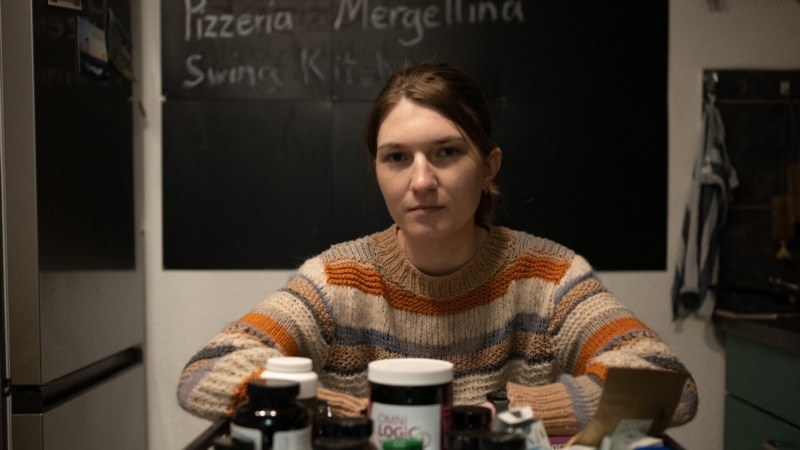
Three years ago, Andrea Vanek was studying to be an arts and crafts teacher when suddenly, attacks of dizziness and palpitations prevented her from even taking short walks.
After seeing a succession of doctors, she was diagnosed with long Covid and even now spends most of her days in the small living room of her third-floor apartment in Vienna, sitting on the windowsill watching the outside world. .
“I can’t plan anything because I don’t know how long this illness will last,” he told AFP This 33-year-old Austrian.
The first cases of Covid-19 were detected in China in December 2019, leading to a global pandemic and more than seven million deaths reported to date, according to the World Health Organization.
But millions more have been affected by long Covid, with some people struggling to recover from the acute phase of Covid-19 and suffering symptoms including tiredness, brain fog and difficulty breathing.
Vanek tries to be careful not to strain herself to avoid another “crash,” which for her is characterized by debilitating muscle weakness and can last for months, making it difficult to even open a bottle of water.
“We know that long Covid is a big problem,” said Anita Jain, from the WHO Health Emergencies Programme.
Around six per cent of people infected with the coronavirus develop long Covid, according to the global health body, which has recorded some 777 million Covid cases to date.
While rates of long Covid after an initial infection are declining, reinfection increases the risk, Jain added.
‘Everything hurts’
Chantal Britt, who lives in Bern, Switzerland, contracted Covid in March 2020. Long Covid, she said, has turned her “life upside down” and forced her to “reinvent herself.”
“I was really an early riser… Now it takes me two hours to get up in the morning at least because everything hurts,” explains the 56-year-old former marathon runner.
“I don’t even expect to be okay in the morning anymore, but it still surprises me how old and broken I feel.”
Around 15% of those with long Covid have persistent symptoms for more than a year, according to the WHO, while women tend to be at higher risk than men of developing the condition.
Britt, who says she used to be a “workaholic,” now works part-time as a university researcher on long Covid and other topics.
He lost his communications job in 2022 after he asked to reduce his work hours.
She misses playing sports, which used to be like “therapy” for her, and now she has to plan her daily activities more, like thinking about places to sit and rest when she goes shopping.
The lack of understanding from those around her also makes it more difficult.
“It’s an invisible disease… that connects with all the stigma that surrounds it,” he said.
“Even people who are very seriously affected, who are at home, in a dark room, who can’t be touched anymore, any noise will cause an accident, they don’t look sick,” he said.
Fall ‘through the cracks’
WHO’s Jain said it can be difficult for healthcare providers to make a diagnosis and that broader recognition of the condition is crucial.
More than 200 symptoms have been listed along with common ones such as fatigue, shortness of breath, and cognitive dysfunction.
“Much of the focus now is on helping patients, helping doctors with the tools to accurately diagnose long Covid and detect it early,” he said.
Patients like Vanek also have financial difficulties. He has filed two court cases to gain more support, but both have yet to be heard.
He said the less than 800 euros ($840) he receives in support cannot cover his expenses, which include high medical bills for the large number of pills he needs to keep his symptoms under control.
“It is very difficult for students who suffer from Covid for a long time. We fall into the cracks” of the social system, unable to start working, he said.
Britt also wants more specific research into post-infectious conditions like long Covid.
“We have to understand them better because there will be another pandemic and we will be as clueless as ever,” he said.
Connect with the Voice of America! Subscribe to our channels YouTube, WhatsApp and to the newsletter. Turn on notifications and follow us on Facebook, x and instagram.



![[Img #74675]](https://thelatestnews.world/wp-content/uploads/2024/12/They-discover-a-new-class-of-X-ray-sources-in-the-150x150.jpg)











Add Comment